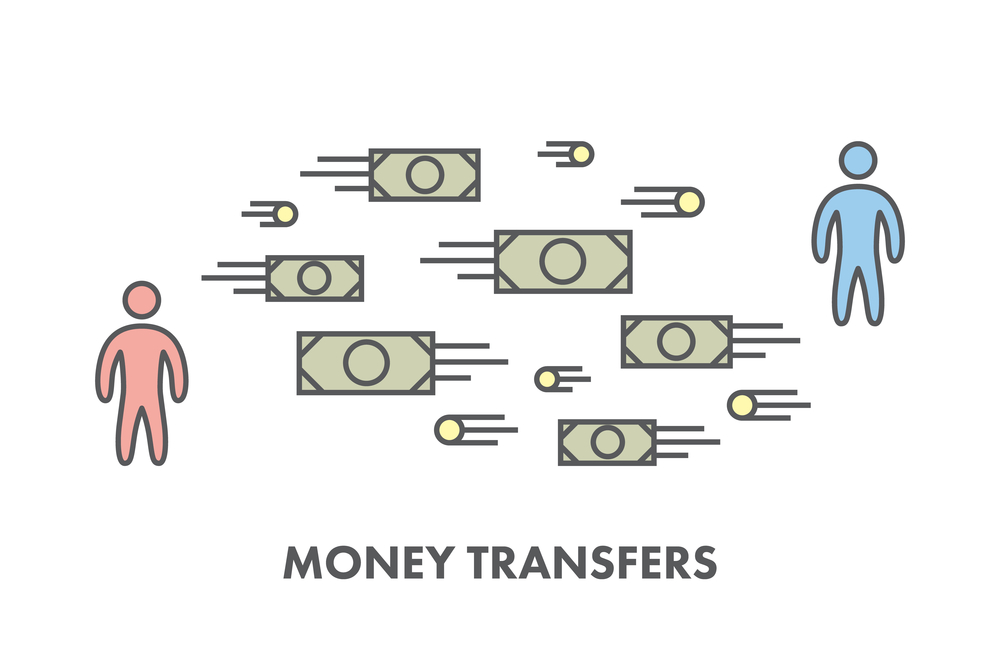How Much Of Money Cab You Legally Withdraw From A Bank

Q: If I want to send money to a customer at another bank, what's cheapest way to do this? I know there are various ways to transfer money. Do I have to pay for a wire transfer or is it free of charge?
- Sobirjon T.
A: In general, there are three main electronic methods of transferring money to a customer of another bank: ACH transfer, wire transfer and electronic transfers via third-party systems.
Ways to Send Money
| Ways to send money | Cost |
|---|---|
| ACH Transfer | Usually free |
| Wire Transfer | Average of $29.50 at the top 10 U.S. banks |
| ClearXchange | Free |
| Western Union | Varies by amount, location, and transfer method |
| Moneygram | Varies by amount, location, and transfer method |
| PayPal | Free with bank account; 2.9% fee with debit or credit card |
| Venmo | Free with bank account, debit card, or prepaid card; 3% fee for credit cards |
| Google Wallet | Free |
| Square Cash | Free |
| Chase QuickPay | Free |
| Free |
ACH Transfers Are Cheap
ACH stands for Automated Clearing House, an electronic network used by financial institutions to process transactions in batches. Because ACH transfers are automated, they are rather inexpensive for banks and they tend to be free for customers (but some banks and institutions may impose a small fee, depending on the transaction).
The typical ACH transfer takes a few days to clear because it requires confirmation and by the receiving party.
Examples of ACH transfers include payroll direct deposit, online bill pay, distribution of Social Security benefits and person-to-person (P2P) payments.
Wire Transfers Are Fast
Unlike the batching-processing nature of ACH transfers, wire transfers are designed for individual transactions. Wire transfers involve more interaction between the institution that sends and receives the money, which is why wire transfer fees (usually a flat fee ranging from $10 to $50 or a percentage of the transferred amount) are typically more expensive than other forms of money transfer. Wire transfer fees may be charged to the sender, the recipient or both.
The biggest benefit of wire transfers is speed. You can send money to a person located halfway around the world in a matter of minutes instead of days.
Banks, credit unions and some financial services providers (e.g., Western Union and MoneyGram) offer wire transfers -- their fee policies may vary. Wire transfers to foreign institutions tend to cost more than domestic wire transfers.
Third-Party Providers
Other portals to send money electronically include e-commerce entities like PayPal, Venmo, Google Wallet, and others. These companies allow users to send and receive money, possibly without fees associated with other transfer methods. However, many consumers don't use them because of the time and effort to set up accounts. Also, people may not have heard of them before.
PayPal is well known because it is the preferred payment option on eBay, where many consumers go to buy things. It doesn't impose a fee when a customer sends money to another PayPal user through a linked bank account. PayPal does charge a fee to the recipient when the transaction involves a sale of goods or services. For regular payments to family and friends, it is free.
More and more major tech giants have entered the market to provide simple and easy personal payments. Google, Facebook, and Square have introduced services that let members send money to others for free. Venmo also allows people to send money instantly -- it was so popular that it was acquired and, now, Venmo is owned by PayPal.
Banks Cut Out Middlemen
Recognizing the high demand for quick and free person-to-person transfers, banks introduced services to fulfill this customer need.
Chase QuickPay is an example of how a big bank is simplifying personal payments. With this feature, Chase customers can send money to any other Chase customer instantly with the email address or phone number tied to his or her Chase account.
The largest U.S. banks have also partnered to form ClearXchange. With this personal payments platform, customers of the participating banks will be able to send money instantly to each other without any other third parties. So, a Chase customer can instantly send money directly to a Bank of America customer without worrying about transfers to a middleman.
Which Transfer Method For You?
As for the cheapest option to send money to someone, it would most likely be ACH transfer. Wire transfers would be the way to go if a transaction is urgent. Personal payment services like those from Venmo and banks could be a better option if you and the recipient have user accounts.
How Much Of Money Cab You Legally Withdraw From A Bank
Source: https://www.mybanktracker.com/news/ways-send-money-someone-else
Posted by: lindsayfatinvand.blogspot.com

0 Response to "How Much Of Money Cab You Legally Withdraw From A Bank"
Post a Comment